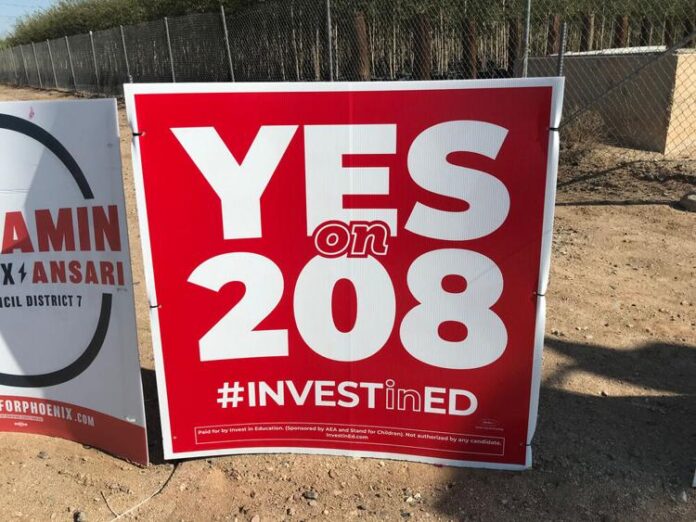
In Arizona, the state Legislature approved a constitutional amendment related to signature requirements for citizen-initiated measures on June 12, 2023. Voters will decide on the amendment at the election on November 5, 2024.
The measure would require a percentage of signatures from each legislative district to qualify a citizen initiative for the ballot. Currently, the signature requirements in Arizona for initiatives are 10% of qualified voters for initiated state statutes and 15% of qualified voters for initiated constitutional amendments. The amendment would establish a signature requirement of 10% of qualified voters in each legislative district for initiated state statutes and 15% of qualified voters in each legislative district for initiated constitutional amendments. The number of qualified voters is defined as the number of votes cast for all candidates for governor from the previous gubernatorial election.
The amendment was introduced as SCR 1015 on Jan. 1, 2023. It passed the Senate on Feb. 14 by a 16-13 vote. All 16 Republicans voted for the amendment, and all 13 Democrats voted against the amendment. On June 12, the House voted 31-29 to pass the amendment. All 31 Republicans voted for the amendment, and all 29 Democrats voted against the amendment.
Rep. David Livingston, in support of the measure, said, “We need to recognize that the counties outside Maricopa matter, and this makes sure the other 14 counties matter.”
Sen. Juan Mendez, however, spoke in opposition to the amendment, saying, “This is effectively going to allow a single partisan [legislative district]to block the desires of the whole state.”
Of the 26 states with initiatives or referendums, there are 16 with a signature distribution requirement. The other 10 states do not have distribution requirements. In seven states, the distribution requirement is spread out over a state’s counties (Arkansas, Massachusetts, Maryland, Nebraska, New Mexico, Ohio, and Wyoming). In five states, it is calculated based on state legislative districts (Alaska, Colorado, Idaho, Montana, and Utah). The other four states with a distribution requirement it is based on U.S. congressional districts (Florida, Mississippi, Missouri, and Nevada).
As of June 12, there were four statewide ballot measures certified in Arizona for 2024. All of the measures were referred to the ballot by the state legislature. One measure would amend Arizona state law, and the three others would amend the Arizona Constitution. There were 10 potential legislatively referred measures that have passed one chamber of the state legislature and may also appear on the 2024 ballot if they pass the other chamber. For legislators to refer a measure to the ballot, it must pass both the House and the Senate by a simple majority. In addition, there are at least two campaigns working to put initiatives on the 2024 ballot.
Last year, Arizona had 10 statewide measures on the November 8, 2022, ballot—eight which were referred by the Legislature, and two which were placed on the ballot by successful citizen initiatives. Seven measures were approved by voters, and three were defeated.
Republished with the permission of The Center Square.













